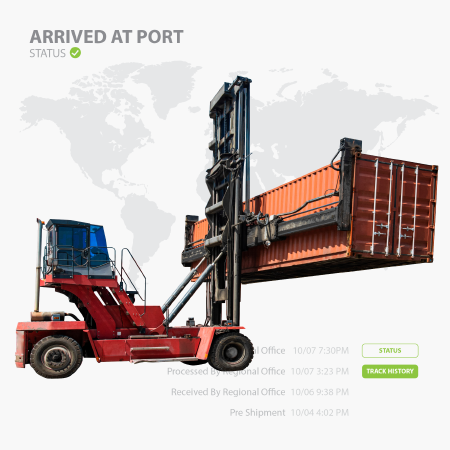Key tips for managing multi-region geolocation compliance
April 30, 2025

Key takeaways*
- Tailor rules by region: Customize geofences and compliance settings per jurisdiction.
- Segment access and data: Use role-based controls and localized data segmentation.
- Localize reporting: Provide region-specific dashboards and delegate access as needed.
- Adapt to change fast: Update rules easily to stay ahead of regulatory shifts.
*Key takeaways were created with the use of AI and reviewed by a human.
Operating across multiple regions — whether across U.S. state lines or international borders — comes with its fair share of complexity. For business leaders in highly regulated industries like online gaming, iLottery, financial or data services, ensuring geolocation compliance is essential to protect your end users, mitigate risks and keep transactions running smoothly.
When it comes to assuring geolocation compliance for online transactions, what works for Sweden or Brazil may not work for Texas, and vice versa. Each jurisdiction brings unique rules, reporting requirements, and enforcement protocols. To stay compliant and responsive, organizations must utilize a geolocation compliance platform that is adaptable to the diverse needs across their operational footprint. In this article, we walk through key tips to help you manage geolocation compliance across multiple regions with confidence.
Why multi-region compliance is so challenging
Regulatory landscapes can vary drastically depending on where you operate. In the U.S., for instance, some states allow online gaming and gambling, others restrict it to specific categories (e.g., skill-based gaming vs. sports betting), and still others prohibit it altogether. Some states may also have varying requirements at the local level such as counties, parishes or physical venues; or for specific types of games within a given category (e.g., live dealer vs digital poker). Similar variations exist in Canada, where provinces such as Ontario may enact regulations individually. Compare these dynamics to countries across the European Union, United Kingdon, Latin America, Africa or Asia, and you’re facing an ever-evolving compliance puzzle with multiple moving parts on every continent.
For providers operating in a multi-regional environment, a single compliance strategy simply won’t cut it. You need a flexible solution that can adapt to these jurisdictional differences without heavy lifting on your dev or ops teams. To safeguard your business and ensure compliance, we recommend following these 5 tips when selecting or applying your chosen geolocation compliance platform to meet your diverse needs.
1. Tailor rulesets to each region
The first step to scaling geolocation compliance across different regions is the ability to customize rules based on jurisdictional requirements. Your geolocation compliance platform should allow you to:
- Easily customize geographic boundaries and rule sets for each jurisdiction
- Quickly adjust compliance settings according to regulatory changes, new threats or organizational risk assessments
- Set specific performance objectives for effective monitoring and operational control
For example, Locance works with your implementation team to configure unique credentials, geofences and rulesets per jurisdiction and gaming use case, to ensure your regulatory and internal operational requirements are met without rewriting backend code.
2. Create segmented geofences and data access controls
Compliance involves establishing operating rules and monitoring ongoing activities against key operating metrics and reporting criteria. To accomplish this, your geolocation compliance platform needs to have the capability to not only operate across regions but also organize operating data and report on key performance metrics by geography. For best results, your platform should support:
- Custom geofences per region (and where necessary, per application/use case)
- Segmented account and data access based on geography and role
- Delegated external stakeholder access for local regulators, auditors or others
With Locance, your account administrators can manage role-based access controls for each region, gaming use case, brand or market, allowing team members (or third-party stakeholders such as regulators) to access only the data or system functions that are relevant to their role. Whether it’s Colorado, New Jersey, or Brazil, account users gain administrator-controlled access to only what is authorized for them — and nothing more.
3. Regional reporting and delegated access
Whether it is for your compliance officers, operations teams, auditors or regulators, having clear, localized data and reporting is crucial. The ability to break down performance and compliance metrics and conduct forensic reviews of specific transactions by jurisdiction allows for fast, transparent operational control, analysis and management. Look for a platform that enables:
- Role-based reporting dashboards with regional data segmentation per use case
- Operational and compliance statistics per region, application, or brand
- Delegated access for third-party stakeholders to review relevant regional data
Managing this multi-level role-based reporting and system access is easy and secure under your account administrator’s total control within the Locance Customer Portal. Whether you need to view aggregated data across all regions or isolate data for one gaming app in Ontario, you can tailor the reporting to your business demands. Rest assured that only your administrator can grant or, if needed, deny access to your data when and as required.
4. Adapt quickly to regulatory change
Regulations don’t remain static, and your geolocation compliance strategy shouldn’t either. Choose a geolocation compliance platform that’s built to respond to new requirements as they emerge, ideally without disrupting your operations. Locance stays ahead of the curve by:
- Responding to regulatory shifts when you need to adapt with easy configuration controls
- Updating rulesets in the cloud — typically with no code changes required on your end
- Pre-configuring changes in your sandboxed test environment before launch
This staging capability is especially useful for companies planning phased rollouts across states or countries. Locance can configure your geofencing and compliance rulesets before going live, helping your team launch the moment you get a regulator’s green light to start operating.
5. Segment even within a region
Multi-region compliance doesn’t just mean country-to-country or state-to-state. Sometimes, different apps, brands or use cases within the same region require different rulesets, access or reporting.
Take, for example, a gaming platform provider that serves a variety of operating brands in either Ontario or Brazil. While all operations may be within one country or province, the provider may serve multiple operators, brands or use cases such as real-money betting, skill-based competitions, or free-to-play experiences. Even within the same jurisdiction, these various apps are subject to distinct compliance requirements, from age verification and fraud detection to differing access, reporting and data processing obligations.
It’s important for your geolocation compliance platform to support your needs whether it is for segmentation within a single jurisdiction or aggregation across all operations. Each end customer or product should have its own unique credentials, geofences, compliance rulesets, reporting stream, and access controls to keep operations running optimally. This intra-regional to cross-region flexibility offers you all the control you need without any added complexity.
Simplifying your multi-region geolocation compliance
When you’re operating across multiple regions, you need a geolocation compliance platform that can handle the nuances of differing regulations, adapt quickly to changes, and scale with organizational growth.
Platforms like Locance are designed with this dynamic complexity in mind, offering capabilities including region-specific rule tailoring, customizable geofences, segmented data access, and proactive change management. These features make it easier for you to stay compliant, even in fast-moving and varying regulatory environments.
Want to learn about how Locance can simplify your multi-region compliance strategy? Contact us today to schedule a demo.








